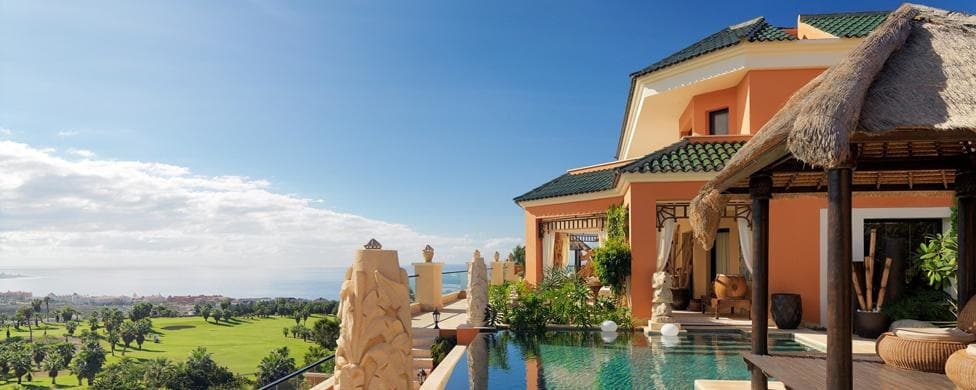1
The government legally can knock your home down whenever they want to.
This has evolved over the past couple of years from accounts of properties that have been built illegally and therefore need to be knocked down. The developers most likely paid off the local town councillors and then they paid other relevant individuals to receive the “building permission.”
I am not claiming those kinds of envelopes haven’t been passed around in Tenerife, but fortunately, the only properties I am aware of that the government has nocked down are the ones that were built too dangerously close to the coast and ran into problems with the Coastal law.
If you are planning to purchase property in Tenerife, be sure to use an attorney and if you have any concerns about the property’s legalities, make sure to have them checked out.
2
“Black Money” can be used for purchasing Tenerife property and you can declare whatever you want to at the notary.
Unfortunately, those types of things still occur, however, the Government and Notaries are attempting to clamp down on them. However, you cannot simply declare whatever you want to and then use black money to pay for the rest. At least you shouldn’t do that. You may think as the buyer that you can get away with taxes, however, there are certain things you might not know about.
If you are purchasing second-property in Tenerife, then there is a land transfer tax that you will need to pay, which is currently 6.5% of the transaction’s value. So if you are paying €150.000 as the buyer and make the decision to declare only €100.000 and then pay the other €50.000 under the table, then you will pay only €6.500 instead of €9.750. However, the first mistake you will have made is when you under-declare it could result in the property you are purchasing being liable for the complimentary tax.
That tax may be charged if your local town hall feels you have not paid enough for the property. Maybe you really did purchase the house for that cheap of a price, but you will still have to pay something. However, paying in cash and then declaring that the purchase price was lower than what you actually paid could result in you paying more in complimentary taxes than you would have by declaring the full amount that you paid.
The second mistake that you might make is when it is time to sell in the future for say €200.000 since you declare a purchase price of €100.000, your capital gains will be €100.000. You will wish then that you had declared €150.000 since then you Capital Gains Tax would only need to be paid on the €50.000 instead of the €100.000. Currently, the Capital Gains Tax is 19%, which is much higher than the 6.5% that you pay when declaring to the notary the full price.
3
If the UK ends up leaving the EU, you won’t own your property, since Brexit will stop Brits from purchasing property in Spain.
This isn’t true at all. Even if the UK does leave the EU (and I am saying If still since I have a feeling it won’t happen), there isn’t anything for Brits to worry about when it comes to purchasing property in Tenerife or anywhere in Spain.
Think about that for a second, if you are Chinese or American, you still can purchase and own property in Tenerife, despite the fact that you don’t belong to the EU.
The same thing would be true for Briths property buyers in the future, so if the UK ends up not being in the EU, there might be some more paperwork to deal with, and the tax law may change somewhat, but the fact is non-EU buyers are able to purchase property here now and there are no concerns for them – so you don’t need to worry about those kinds of major changes affect your right be able to own Tenerife property.
4
Tenerife holiday homes can be purchased for under €50.000.
It is true that Tenerife does still have some bargains, but if you think you can buy a holiday home here for €50.000, then you definitely need to think again.
There are still some deals, and there are actually properties for that amount of money for sale, but they aren’t in areas that are all that residential.
They are areas where there is no swimming pool where the apartment is, not many properties that have ocean views, and they aren’t within walking distance to the local beach. Even if you were interested in purchasing one of those properties to live like the locals and avoid tourists, most likely they won’t be in areas that your family and friends would want to go on a holiday.
5
Brits are not allowed to rent out their property.
No one is banned from renting out their properties.
There is not a new land that bans anybody from renting out their property if they want to. What is occurring is that there was a law that was passed initially in 1995 regarding short-term letting that in recent years has been enforced but it doesn’t stop anyone from being able to let their property. You still can rent out your property but you need to read the Canary Island letting laws before determining what to do.
6
You are protected from the Spanish Inheritance Tax by having a Spanish Will.
This is false. However, having a Spanish Will can help you to reduce what your tax liability is, or help you sleep better at night so that you don’t need to worry what will happen after you die.
After you purchase a Tenerife property, hire a reputable independent Spanish Lawyer to get your will set up here and be sure to inform them about any other wills that are in place in any other countries.
7
Foreigners are charged prohibitively expensive taxes.
This myth might come from the Inheritance tax laws that until recently were in place.
In general, taxes in Spain aren’t any worse than in the UK or other countries and in many cases, they are a lot less expensive.
You will need to pay land registry fees, legal fees, notary fees, and land transfer tax when purchasing a property and while you own it there will be annual property owners tax that needs to be paid along with non-resident taxes probably as well as the operating costs. When you sell your plusvalia will need to be paid and probably a 3% retention will need to be paid to the Hacienda.
Those are all regular taxes you will need to pay. However, in the past, the Inheritance tax was a lot higher for foreigners than it was for Spanish nationals. Several autonomous regions in recent times have reduced their Inheritance Taxes, including the Canary Islands.



Recent Comments